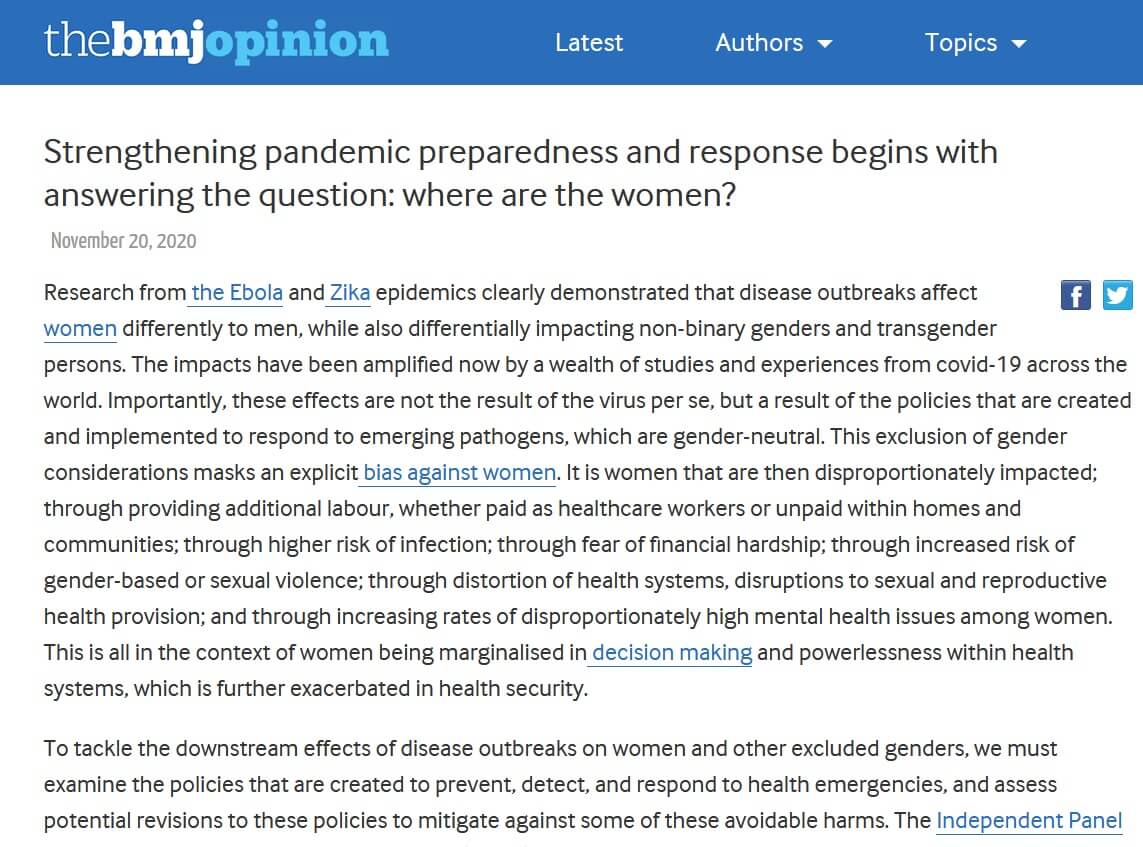Research from the Ebola and Zika epidemics clearly demonstrated that disease outbreaks affect women differently to men, while also differentially impacting non-binary genders and transgender persons. The impacts have been amplified now by a wealth of studies and experiences from covid-19 across the world. Importantly, these effects are not the result of the virus per se, but a result of the policies that are created and implemented to respond to emerging pathogens, which are gender-neutral. This exclusion of gender considerations masks an explicit bias against women. It is women that are then disproportionately impacted; through providing additional labour, whether paid as healthcare workers or unpaid within homes and communities; through higher risk of infection; through fear of financial hardship; through increased risk of gender-based or sexual violence; through distortion of health systems, disruptions to sexual and reproductive health provision; and through increasing rates of disproportionately high mental health issues among women. This is all in the context of women being marginalised in decision making and powerlessness within health systems, which is further exacerbated in health security…
Wenham, C., Asthana, S., Lal, A., Dhatt, R., Voss, M., Phelan, A., & Davies, S. E. (2020, November 20). Strengthening pandemic preparedness and response begins with answering the question: Where are the women?. The BMJ Opinion.






